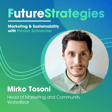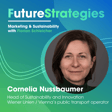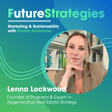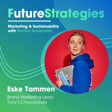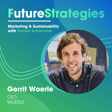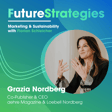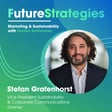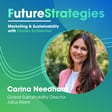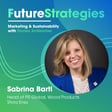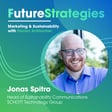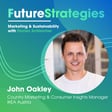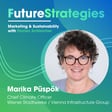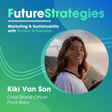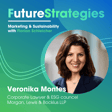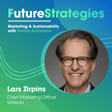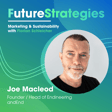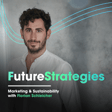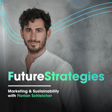
✳️ The Sustainability Future Trap - Marcel Aberle, trend & future researcher
Marcel Aberle is a trend and future researcher. His job is to inspire people and organizations for their future and support them in implementing new ideas and strategies. He spots the megatrends that are next – and explains it in ways that stick.
About the FutureStrategies podcast and Florian:
Hi, my name is Florian Schleicher I’m a marketing strategist. I work with brands ready to take their next bold step and truly connect with their audience. I help them uncover insights that matter, design workshops that spark real change, and turn strategy into clear, actionable blueprints. In 2022 I started my own Marketing Studio FUTURESTRATEGIES.
Also: If you enjoy reading, be sure to check out my FutureStrategies newsletter. It’s perfect for marketing leaders and those who aspire to be: Inspiration on marketing, strategies and sustainability.
And if you have a challenge that keeps you and your company from doing your best work and this challenge is about marketing, strategies or sustainability, then I’d love to get to know you and your projects!
